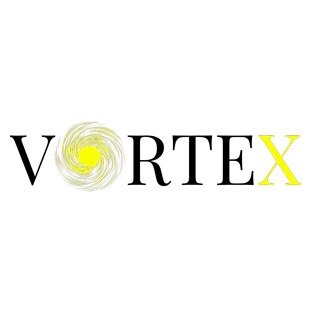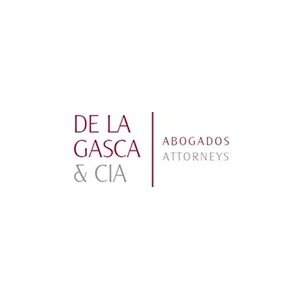Best Renewable & Alternative Energy Lawyers in San Salvador
Share your needs with us, get contacted by law firms.
Free. Takes 2 min.
List of the best lawyers in San Salvador, El Salvador
About Renewable & Alternative Energy Law in San Salvador, El Salvador
Renewable and alternative energy law in San Salvador plays a vital role in supporting the transition to cleaner, sustainable energy sources such as solar, wind, hydro, and geothermal power. The government of El Salvador has actively encouraged the adoption of renewable energy to diversify the country’s energy matrix, reduce dependency on fossil fuels, and comply with environmental protection commitments. This legal field covers the regulations, incentives, licensing, and contractual frameworks that affect the generation, distribution, and use of renewable and alternative energy within the city and the country at large.
Why You May Need a Lawyer
While the push for renewable and alternative energy in El Salvador offers many business and environmental opportunities, it also introduces a complex legal landscape. A lawyer specializing in this sector can provide critical assistance in several common situations:
- Navigating government incentives and subsidy programs for renewable energy projects
- Handling project development, including securing permits and environmental authorizations
- Drafting and negotiating power purchase agreements
- Ensuring compliance with evolving environmental regulations
- Resolving land use and property rights matters related to energy installations
- Managing import and tax considerations for renewable energy equipment
- Representing clients in administrative or regulatory proceedings
- Advising on joint ventures or foreign investment in renewable energy
- Helping resolve disputes with contractors, suppliers, or government agencies
A lawyer can help protect your rights and ensure your renewable energy project moves forward efficiently while remaining fully compliant with San Salvador’s legal requirements.
Local Laws Overview
San Salvador, as part of El Salvador, is governed by several key laws and regulations that impact the renewable and alternative energy sector. These legal frameworks include:
- The General Electricity Law, which sets the rules for power generation, distribution, and commercialization
- Incentive laws such as the Special Law to Promote the Production of Renewable Energy, introducing tax benefits and facilitating permits for renewable energy projects
- Environmental regulations managed by the Ministry of Environment and Natural Resources (MARN), requiring environmental impact assessments and sustainable practices
- Technical standards issued by the electric and energy regulatory authority SIGET, which establish compliance requirements for energy production and interconnection
- Local municipal regulations that may affect land use and construction permits for renewable installations within San Salvador
It is essential to understand that these laws can be updated periodically, and successful renewable energy projects usually require coordination with multiple governmental agencies and adherence to both national and local requirements.
Frequently Asked Questions
What types of renewable energy projects are most common in San Salvador?
The most common renewable energy projects in San Salvador and the country include geothermal, hydroelectric, and solar power installations, with wind energy also being explored.
Are there incentives for investing in renewable energy in El Salvador?
Yes, the government offers various incentives including tax exemptions, expedited permitting, and customs benefits for importing renewable energy equipment.
Do I need government permits to start a renewable energy project?
Yes, most projects require permits from the Ministry of Environment and other relevant authorities, especially if they involve significant land use or environmental impact.
How is electricity from renewable sources integrated into the national grid?
Electricity produced from approved renewable energy projects can often be sold or supplied to the national grid through Power Purchase Agreements, subject to technical and regulatory requirements.
Can foreign entities invest in renewable energy projects in San Salvador?
Yes, foreign investment is permitted and even encouraged, provided that investors comply with national laws, regulations, and investment screening processes.
What environmental regulations apply to renewable energy developments?
All significant energy developments must comply with MARN’s environmental assessments, including waste management, emissions, water use, and post-operational site restoration.
Are there any restrictions on the location of renewable energy installations?
Yes, installations may face restrictions due to land use zoning, protected natural areas, and proximity to urban populations. Municipal permits and environmental clearances are usually required.
What legal steps are involved in selling renewable energy to third parties?
This typically involves registering with regulatory agencies, obtaining the necessary production and commercialization licenses, and formalizing Power Purchase Agreements.
What happens if my renewable energy project causes environmental harm?
There are penalties for non-compliance, including fines, suspension of permits, or mandated remediation. Legal representation is helpful if administrative sanctions are imposed.
How can I ensure compliance with all relevant regulations over time?
Engage a lawyer or compliance expert to regularly review your operations and advise on ongoing legal or regulatory changes affecting your project.
Additional Resources
If you need further guidance or official information on renewable and alternative energy in San Salvador, consider contacting these primary sources:
- Ministry of Environment and Natural Resources (MARN) - oversees environmental permits and policy
- General Superintendency of Electricity and Telecommunications (SIGET) - regulates electricity generation, transmission, and distribution
- National Energy Council (CNE) - promotes and develops national energy policy and incentives
- Salvadoran Center for Appropriate Technology (CESTA) - provides guidance for eco-friendly projects
- Chambers of Commerce and Industry - offers networking and information sessions for renewable energy investors and developers
Next Steps
If you are considering a renewable or alternative energy project in San Salvador or need advice on compliance, permits, or contracts, follow these steps:
- Outline your project or legal concern in as much detail as possible
- Consult a qualified lawyer specializing in renewable and alternative energy law in El Salvador
- Prepare documentation related to your project or inquiry, including technical plans and correspondence with authorities
- Contact relevant government agencies for initial guidance before starting your project
- Stay informed about any legislative changes that may affect your legal obligations or available opportunities
- Continue collaborating with your legal adviser throughout the lifecycle of your project to manage changes and uphold compliance
Navigating the legal landscape of renewable and alternative energy in San Salvador can be complex, but with the right professional support, your project can thrive while supporting El Salvador’s sustainable energy goals.
Lawzana helps you find the best lawyers and law firms in San Salvador through a curated and pre-screened list of qualified legal professionals. Our platform offers rankings and detailed profiles of attorneys and law firms, allowing you to compare based on practice areas, including Renewable & Alternative Energy, experience, and client feedback.
Each profile includes a description of the firm's areas of practice, client reviews, team members and partners, year of establishment, spoken languages, office locations, contact information, social media presence, and any published articles or resources. Most firms on our platform speak English and are experienced in both local and international legal matters.
Get a quote from top-rated law firms in San Salvador, El Salvador — quickly, securely, and without unnecessary hassle.
Disclaimer:
The information provided on this page is for general informational purposes only and does not constitute legal advice. While we strive to ensure the accuracy and relevance of the content, legal information may change over time, and interpretations of the law can vary. You should always consult with a qualified legal professional for advice specific to your situation.
We disclaim all liability for actions taken or not taken based on the content of this page. If you believe any information is incorrect or outdated, please contact us, and we will review and update it where appropriate.












